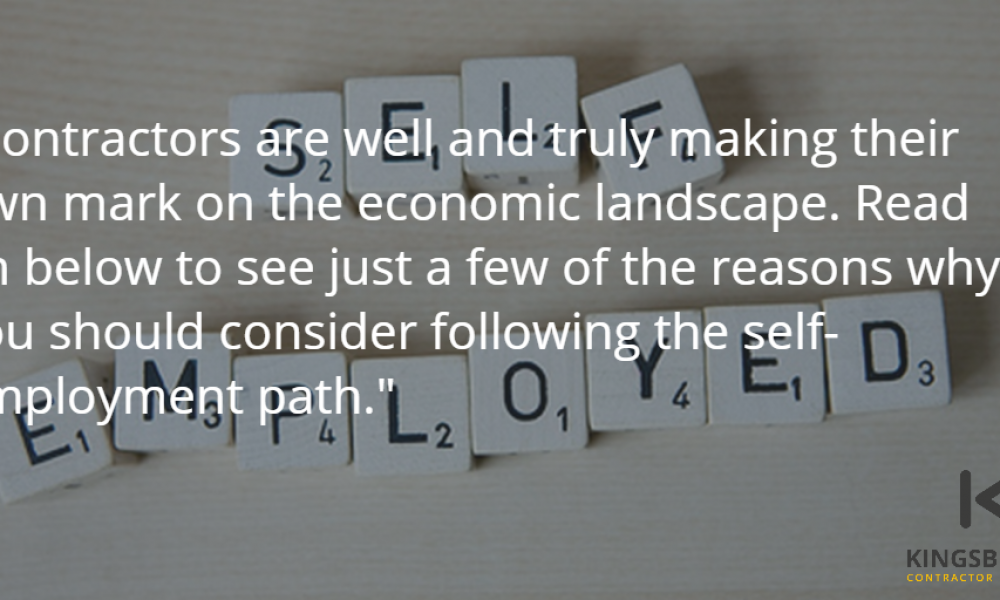10 tips for setting up your limited company as a contractor
If you’ve decided to take the leap into contracting, congratulations! It’s a big, exciting step and you’re probably buzzing with…
More and more people working in what one might term ‘traditional’ employment are moving into the freelance and contracting sectors.…

More and more people working in what one might term ‘traditional’ employment are moving into the freelance and contracting sectors. As Julie Deane’s recent Self-Employment Review made clear, the number of people currently self-employed in the UK has reached unprecedented levels, not only making a crucial economic impact but also ensuring that the sustained growth of recent years continues on an upward trajectory.
It’s true, in many ways, that there’s never been a better time to make the switch and plough your own furrow – leave the office, leave your routines, perhaps even leave your comfort zone. Contractors are well and truly making their own mark on the economic landscape. Read on below to see just a few of the reasons why you should consider following the self-employment path.
There’s nothing wrong with routine. Knowing where you should be, and having your priorities set out for you, makes working life that little bit easier. However, there’s a lot to be said for being the master of your own working world.
Got an important appointment that you absolutely have to make? Easy – you can fit it into your schedule. Work better in the twilight hours? If you’re self-employed no one’s going to come and kick you out of your own office. You’ll be able to work to a schedule that you prefer.
We’d just recommend that you make sure you manage your finances properly – if you decide to take a long holiday make sure you have enough income to cover you whilst you’re not working.
Generally speaking, the income of a contractor tends to be higher than that of a permanent employee. Contractors tend to be specialists in their fields, with highly tailored skill sets appealing to clients looking for someone to undertake a specific project. Pay is generally higher when you’re an expert in your field, and when you have greater flexibility.
Coupled with this, contractors are also able to claim expenses that lead to higher take-home pay (by offsetting allowable business expenses against tax.)
One of the greatest benefits of making the move to contracting is the ability to work on your own terms – where you work, when you work, and how you work. You’re not tied down by the same constraints that come with permanent employment, allowing you the freedom to go out and do work that you really enjoy.
Whilst there are positives that come from working in a clearly defined environment, it can be difficult not to get caught up in the tangled web of bureaucracy and office politics that plague even the best workplaces. Unsurprisingly, an environment like that can lead to lower motivation and a lack of focus.
By following the path of self-employment you’ll be able to avoid this, allowing for greater focus on the task you’ve been bought in to specifically complete.
This isn’t to say the contracting world is one free from risk, with the uncertainty of continuous work being the main worry for many. However, with greater financial benefits, a much higher degree of flexibility, the freedom that comes with autonomy, and the potential to broaden your experiences with roles in a variety of companies and industries, contracting offers a fantastic opportunity for both personal and professional satisfaction.
If you’re thinking of becoming a contractor, or have already made the move and need to have the correct insurance in place, why not give one of our friendly client services team a call on 01242 808740, or contact us on our website.